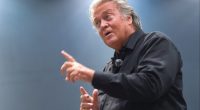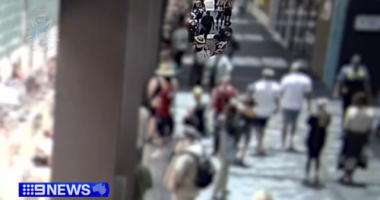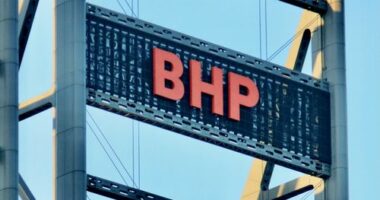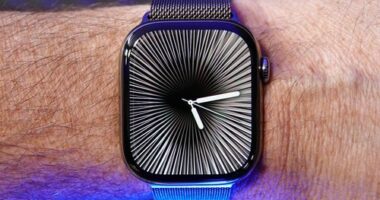Share this @internewscast.com
Today, that legacy feels both vital and increasingly complex.

Amid growing social unrest in the US and during International Pride Month, West Hollywood remains a powerful magnet for queer and trans people from across the country. Source: Supplied
Protests erupted earlier this month in response to Immigration and Customs Enforcement (ICE) raids targeting undocumented immigrants in LA’s Downtown and Latino neighbourhoods, such as Paramount. In the weeks since, clashes with police, the unprecedented deployment of the national guard and growing fear among immigrant communities have created an atmosphere of unrest and uncertainty.
While only a few kilometres away from neighbourhoods targeted by ICE, culturally and politically, West Hollywood, or WeHo, functions like its own city.
For many, this small pocket of LA still offers a sense of safety, joy and belonging.

West Hollywood is known for its vibrant drag scene and rich history of advocating for LGBTIQ+ rights. Source: Supplied
In search of community
It’s the opening reception for It’s Where I Belong: 40 Years (and More) of Drag in West Hollywood, a new exhibition hosted by the One Institute, celebrating four decades of drag culture in the city.

A drag performer reads a poem of resistance in protest against the anti-LGBTIQ+ legislation sweeping across the US. Source: Supplied
The exhibition’s curator is drag performer, children’s book author, and university professor Lil Miss Hot Mess, who just a few weeks before was publicly labelled a “monster” and a “child predator” by controversial Republican congresswoman Marjorie Taylor Greene.
“The unfortunate irony of Greene’s political bullying is that while she claims to promote liberty, in reality, she just wants to tell us all what to think and do. That’s not freedom, that’s fascism,” she says.
When people say we don’t want to have drag, guess what they’re gonna get? More drag.

Lil Miss Hot Mess is an author, activist and a West Hollywood icon. Source: Supplied / Lil Miss Hot Mess
The exhibition offers a vivid reminder that West Hollywood has long served as both a creative epicentre and a sanctuary for queer communities.
“Over the past four decades, drag has really flourished as an art form in WeHo, from iconic nightclubs … to community activism and fundraising.”

The latest US federal budget proposal slashes funding for LGBTIQ+ initiatives, including diversity, equity and inclusion programs, transgender healthcare access and HIV/AIDS services. Source: SBS News / Vernon Scott
WeHo’s history of defiance
But far from it. Valenzuela’s activism following his diagnosis has earned him two listings in the OUT100 list, representing the country’s most influential LGBTIQ+ leaders.
The latest US federal budget proposal slashes funding for LGBTIQ+ initiatives, including diversity, equity and inclusion programs, transgender healthcare access and HIV/AIDS services, amounting to roughly US$2.67 billion ($4.11 billion) in cuts.

Rory Hayes says they miss their hometown, but the need to live in a place that made them feel visible has taken priority. Source: Supplied
Leaving home and finding belonging
When Hayes later decided to move to LA at 17, they never looked back.
I felt a hundred per cent more like myself. I wasn’t around anything that reminded me of those places where I felt unsafe.
“West Hollywood felt very queer, objectively safe. Now, with anti-trans bills cropping up nationwide, I’m encouraging more folks to spend their time here or even move,” they said.

Rory Hayes (left) relocated from Chicago to West Hollywood and is now well-known in the trans community as an advocate for access to gender-affirming care. Source: Supplied / Rory Hayes
California and hormone replacement therapy
Whereas states like Texas have passed bills criminalising doctors prescribing HRT to minors, and Florida’s ‘Parents’ Bill of Rights’ has led to hospitals being investigated for treating trans youth.
“I still miss my hometown, but I needed to be in a place that actively lifts queer stories. West Hollywood lets me be seen,” Hayes says.
‘A safe space people can rely on’

Married couple Cynthia and Betsy hope their business, Fangirl Café, will continue to be a safe space for the trans community in West Hollywood. Source: Supplied / Vernon Scott
Just a few blocks away from One Gallery, Fangirl Café pulses with a different kind of energy.
Inside the café on a quiet weekday, vinyl spins in the corner, and a small stage stands ready for acoustic sets, drag karaoke, and album listening parties.
“Our approach was simple: be honest about what we can provide, and the right crowd will find us. Since launch, people have come for coffee and stayed for community.”
Seeing trans friends hug and cry on our couches, telling us ‘thank you for this space’ makes every late night worth it.

Betsy (right) says due to the current political climate, trans identities are “literally being erased, and the current climate means that people are more comfortable being outwardly and unwarrantedly hateful”. Source: SBS News / Vernon Scott
But running a small business in WeHo isn’t without its struggles.












